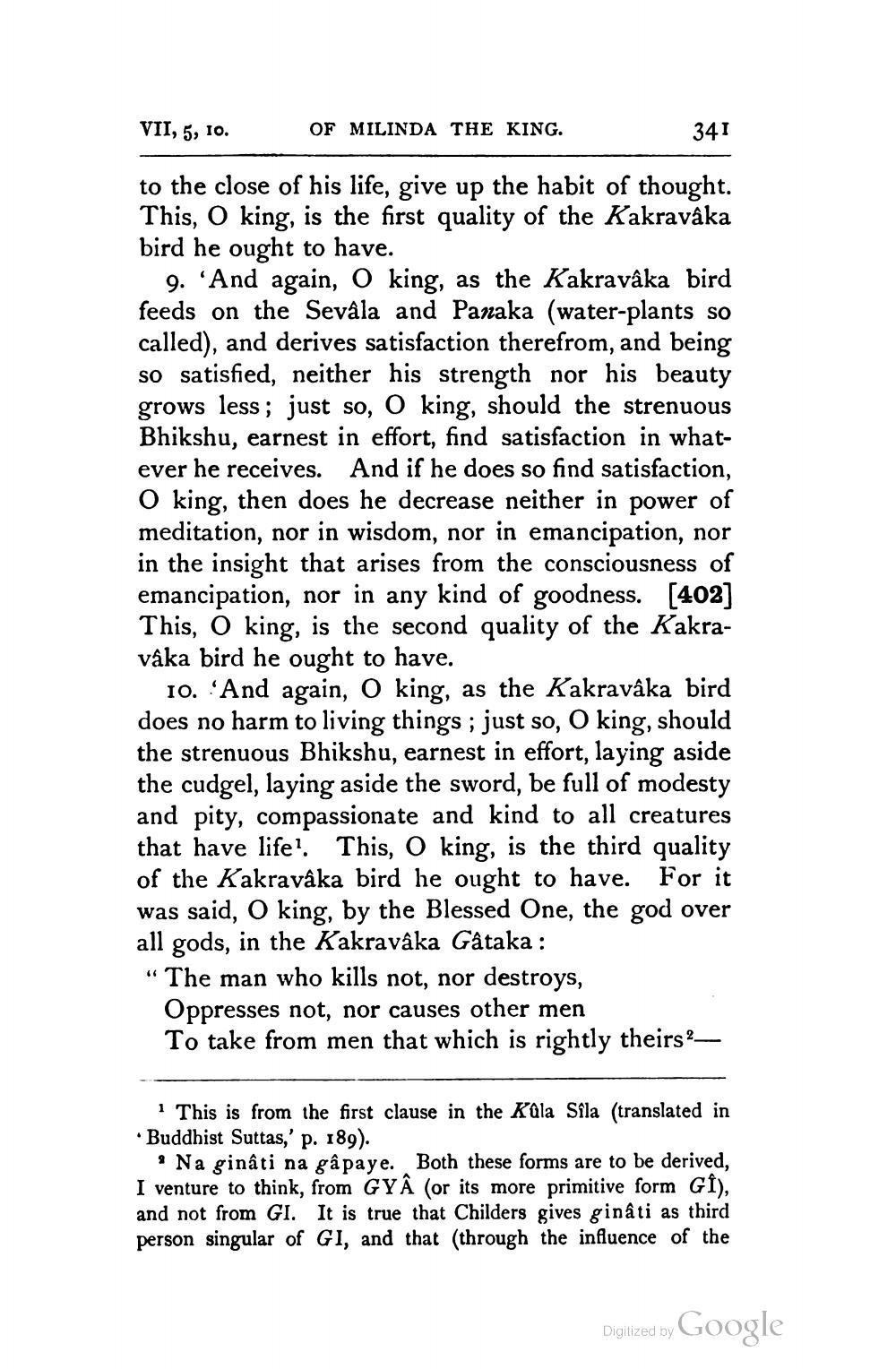________________
VII, 5, 10.
OF MILINDA THE KING.
341
to the close of his life, give up the habit of thought. This, o king, is the first quality of the Kakravaka bird he ought to have.
9. 'And again, O king, as the Kakravâka bird feeds on the Sevala and Panaka (water-plants so called), and derives satisfaction therefrom, and being so satisfied, neither his strength nor his beauty grows less; just so, O king, should the strenuous Bhikshu, earnest in effort, find satisfaction in whatever he receives. And if he does so find satisfaction, O king, then does he decrease neither in power of meditation, nor in wisdom, nor in emancipation, nor in the insight that arises from the consciousness of emancipation, nor in any kind of goodness. [402] This, O king, is the second quality of the Kakravâka bird he ought to have.
10. And again, O king, as the Kakravâka bird does no harm to living things; just so, O king, should the strenuous Bhikshu, earnest in effort, laying aside the cudgel, laying aside the sword, be full of modesty and pity, compassionate and kind to all creatures that have life? This, o king, is the third quality of the Kakravâka bird he ought to have. For it was said, O king, by the Blessed One, the god over all gods, in the Kakravâka Gâtaka : “The man who kills not, nor destroys, Oppresses not, nor causes other men To take from men that which is rightly theirs 2–
This is from the first clause in the Küla Sîla (translated in • Buddhist Suttas,' p. 189).
Na ginâti na gâpaye. Both these forms are to be derived, I venture to think, from GYA (or its more primitive form GI), and not from Gl. It is true that Childers gives ginâti as third person singular of GI, and that through the influence of the
Digitized by Google




